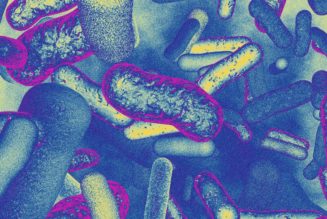
If you ask geriatric specialists what the key is to healthy aging, the answer is usually healthy living. It might sound simple, but as you know when you don’t want to work out, skimp on sleep, and eat way too many French fries dipped in ranch, it’s not.
The World Health Organization defines healthy aging as “a continuous process of optimizing opportunities to maintain and improve physical and mental health, independence, and quality of life throughout the life course.”
There are, of course, variables that must be considered as we age, including the time it takes for our bodies to heal, genetic predispositions, and advanced disease processes that are more prevalent as we mature.
But in essence, the same principles of healthy living apply to any stage of physical human development: physical movement, a healthy diet, regular check-ins with medical providers, and focusing on engaging with the community and focusing on positive mental health.
If you are hoping to maintain what you have through your sunset years, make these seven priorities from the National Institute on Living your priorities:
-
Physical Movement. Scientific studies have shown that physical movement improves the likelihood of maintaining optimal health. Research indicates that engaging in a daily walk, an hour of gardening, a low-impact aqua-aerobics class, 15 minutes of yoga, or even a session of joyful catch with a beloved pet can have a significant positive impact on our physical health.
-
Eating Well. Michael Pollan, internationally renowned journalist and author, has some concise advice on how we can maintain healthy nutrition at any age: “Eat food. Not too much. Mostly plants.” To date, no journalist, nutritionist, researcher, or study can dethrone Pollan on this solid, simple, and actionable advice.
-
Stay Engaged. Cognitive engagement and functioning are vital to our sense of well-being. Research shows that if we can remain engaged in the community in a way that is meaningful to us, whether spending time at a local library or donating to a school food program, our cognition and mental health benefit from a sense of contribution and connection.
-
Sleep Health. Focus on a good night’s sleep. Studies have shown that sleep quality has a direct impact on our healing process, our memory, and our mental health. Research shows that those with poor sleep quality have a harder time solving problems and concentrating during waking hours. Establish a pre-bedtime routine that works for you, and try to follow it consistently.
-
Quit Smoking and Limit Alcohol. Smoking cessation has been proven to lower the risks of cancer, heart attack, and stroke. A comprehensive study conducted by the National Institute on Alcohol Abuse and Alcoholism shows that alcohol consumption is on the rise. Speak to your doctor or reach out to a local support group if you would like assistance with substance or alcohol-related concerns.
-
Regular Medical Check-Ins. Several studies show that regular check-ins with healthcare providers can help in the prevention of chronic diseases such as high blood pressure and high cholesterol, both leading contributors to heart disease.
-
Focus on Mental Health. As we age, we can experience increased feelings of isolation and loneliness. Stay connected with your community in any way that feels positive and productive to you. Consider participating in a local class or education opportunity. Remember that you bring vital, unique skill sets, and experiences. Seek out ways to pay this forward, and encourage the curiosity and growth of younger generations.









